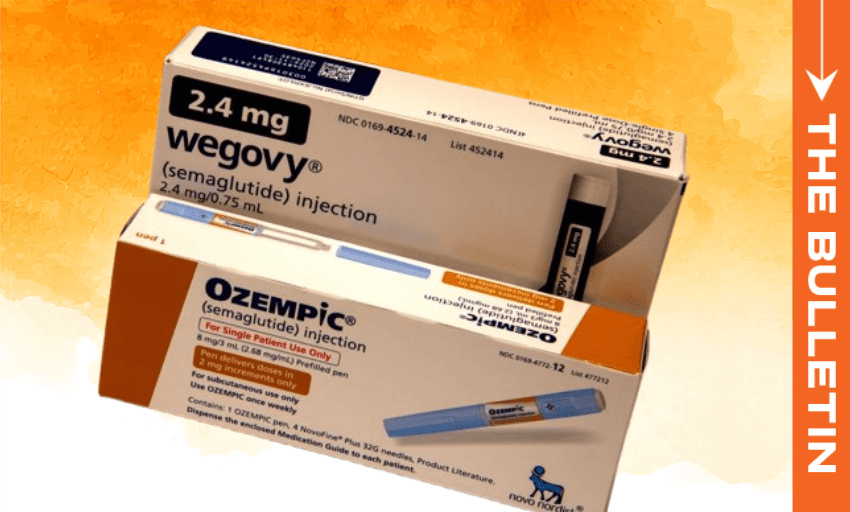The government is scheduled to announce reforms to fast-track new drugs based on prior overseas approvals, writes Catherine McGregor in today’s extract from The Bulletin.
To receive The Bulletin in full each weekday, sign up here.
Quicker drug approvals on their way
The government is expected to unveil reforms today that will allow faster approval of medicines already in use overseas, delivering on a promise in the National-Act coalition agreement. The new regime enables the health minister to sign off new drugs if they’ve received full approval from at least two of seven designated regulators, including agencies in the US, UK, Australia, Canada and the EU. While the coalition agreement pledged that Medsafe must approve such drugs within 30 days, that specific deadline hasn’t made it into the legislation – though associate health minister David Seymour is expected to commit to it in practice, reports Marc Daalder in Newsroom.
One notable change: the legislation’s regulatory impact statement had “envisaged Medsafe making the final decisions to approve, reject or transfer applications under the new pathway”, Daalder writes. “Instead, the bill as written would give that power to the health minister, after the Director-General of Health ensured the application met the basic requirements for streamlining.”
New Zealand ‘at the back of the queue’ for new drugs
For years, critics have called New Zealand’s medicines approval process frustratingly sluggish, and sometimes dangerously so. Medsafe’s years-delayed approval of the mpox vaccine during a global outbreak is just one recent example. The Covid-19 vaccine rollout faced similar delays, with Medsafe slower than overseas counterparts to approve vaccines already in widespread use – a frustration that helped drive the development of this legislation, Daalder writes.
Around the time of the last election, economist Eric Crampton began advocating for a “rule of two” allowing automatic approval after two approvals by trusted overseas regulators. He has described the current process as actively harmful. “Requiring companies to jump over bespoke New Zealand hurdles … when they’ve already proven themselves fit by jumping more rigorous hurdles overseas, just puts Kiwis at the back of the queue,” he wrote in Newsroom in 2023. In fact, the new legislation closely mirrors the system Crampton recommended in his report ‘Safe to Follow: Faster Access to Medicines for Kiwis’.
Wegovy: better late than never
This week’s announcement comes hot on the heels of Medsafe finally approving Wegovy, a high-profile semaglutide drug used for weight loss. Wegovy, made by Novo Nordisk, is often described as a “sister drug” to Ozempic, which is approved here for diabetes treatment. The two medications work in similar ways but are prescribed for different purposes. Seymour called Wegovy’s approval “very exciting,” but said it also illustrates why reforms are overdue. “The fact something got consented is not in itself evidence of [Medsafe’s] high performance,” he told reporters. Wegovy had already been approved overseas for years – and had transformed obesity treatment in many countries – by the time it got through New Zealand’s process.
Who can get Wegovy and Ozempic?
The real promise of semaglutide drugs may go far beyond weight loss or diabetes. Research is now exploring their potential in areas as diverse as cardiovascular disease, addiction and even dementia. Some studies suggest they could help reduce the risk of stroke or treat fatty liver disease. Yet for now, both Ozempic and Wegovy remain tightly regulated in Aotearoa, as in most countries. Ozempic can be prescribed for type 2 diabetes, while Wegovy – once available – will be restricted to those with a BMI that “classes them as obese, or overweight in the presence of at least one weight-related comorbidity”, reports Jamie Ensor in the Herald.
For patients, that’s a potentially transformative option. For the health system, Seymour argues, it’s a cost-saving opportunity. While noting that he respects Pharmac’s independence, he says he’s asked the agency “to start saying, how can spending more on pharmaceuticals save us money elsewhere? Wegovy and Ozempic may be perfect examples of that.”
